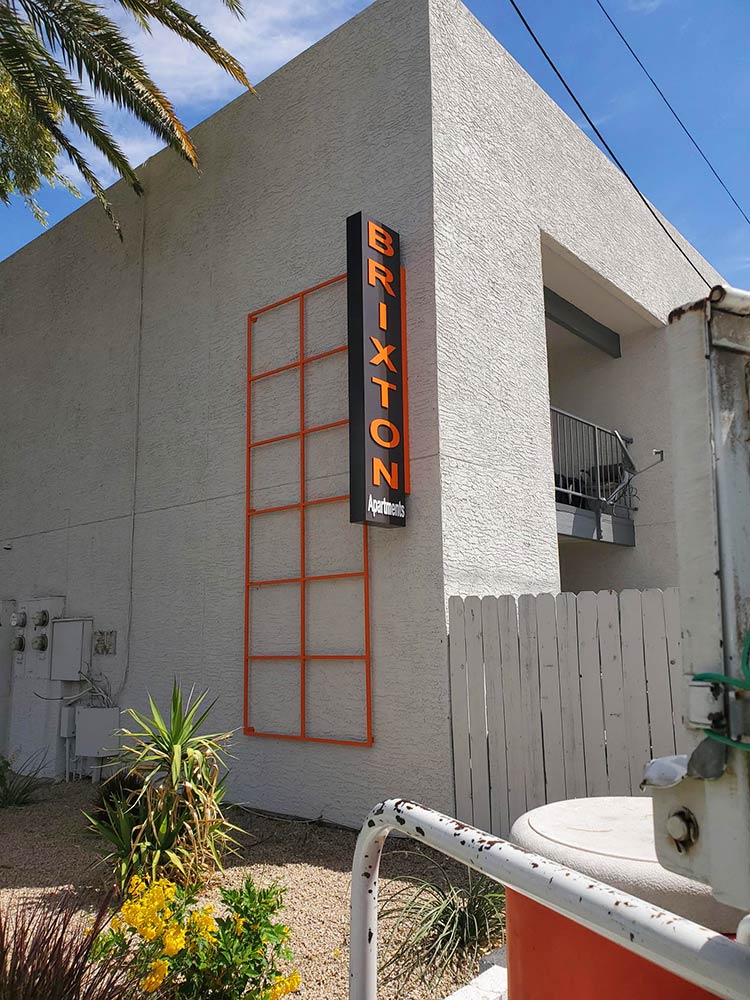Dealing with a neighbor who objects to a sign in your yard can be a delicate situation. Here are some steps you can take to address the issue:
Whether you can have a business sign in your front yard depends on several factors, including local zoning laws, homeowners’ association (HOA) rules, and the nature of the business. Here are key points to consider:
1. Local Zoning Laws
- Residential vs. Commercial Zoning: Many residential areas restrict commercial signage, as zoning laws are designed to keep business activities separate from residential areas. Some cities, however, may allow small signs for home-based businesses with certain size and placement restrictions.
- Permit Requirements: If signage is allowed, you may still need a permit. Check with your local city or county planning or zoning department for specific rules and potential permit requirements.
2. HOA Rules and Covenants
- Restrictions on Signage: Many HOAs have rules that limit or outright prohibit signs in yards to maintain neighborhood aesthetics. However, some may allow small, tasteful business signs.
- Temporary Exceptions: Some HOAs may allow temporary signage (like for open houses or service provider signs) but may not allow permanent business signs.
3. Type and Size of the Sign
- Small Professional Signs: For home-based businesses, some areas allow small, unobtrusive signs (e.g., 1-2 square feet), particularly if they don’t advertise overtly and simply display a business name.
- Temporary Signs: For seasonal businesses, occasional events, or temporary promotions, signs are often allowed as long as they are removed after the event.
4. Advertising Regulations
- Restrictions on Certain Businesses: Some areas may restrict signage for certain types of businesses due to noise, traffic, or other concerns related to residential zoning.
- Sign Content: There may also be restrictions on content, especially in residential areas, to maintain community standards.
5. Alternatives to Front Yard Signs
- Vehicle Signs: Displaying a magnetic sign on a vehicle parked outside is often an alternative to a yard sign and may not be restricted by zoning laws or HOA rules.
- Digital Marketing: Promoting your business through online or social media platforms may serve as an effective alternative if local rules prevent signage.
It’s best to start by reviewing local zoning ordinances and, if applicable, HOA covenants, and consult with local authorities to ensure compliance with all regulations before placing a sign in your yard.
If A Neighbor Objects To Your Sign.
1. Understand the Rules and Regulations
- Check Local Laws and Ordinances: Verify whether there are any local laws or homeowners’ association (HOA) rules regarding signs in residential yards. Some areas have specific regulations about the size, type, and placement of signs.
- Review Your Property Rights: Understand your rights as a property owner. In many cases, you are allowed to display signs on your property, but there may be restrictions.
2. Communicate with Your Neighbor
- Listen to Their Concerns: Have a calm and respectful conversation with your neighbor to understand why they object to the sign. Their concerns might be aesthetic, safety-related, or based on personal preferences.
- Explain Your Position: Share your reasons for wanting to keep the sign, whether it’s for political expression, business advertisement, or another purpose.
3. Seek a Compromise
- Adjust the Sign: If the issue is about the size or placement of the sign, see if you can make adjustments to address your neighbor’s concerns. For example, you might move the sign to a different location in your yard or reduce its size.
- Set Time Limits: If the sign is temporary (e.g., for an event or election), agree on a timeframe after which the sign will be removed.
4. Mediation
- Third-Party Mediation: If direct communication doesn’t resolve the issue, consider involving a neutral third party to mediate the dispute. This could be a community mediator, HOA representative, or local government official.
5. Know Your Legal Options
- Legal Advice: If the disagreement escalates and you believe you are within your legal rights to keep the sign, consult a lawyer for advice. They can provide guidance based on local laws and property rights.
- File a Complaint: If your neighbor continues to harass you about the sign, you may need to file a formal complaint with local authorities or your HOA.
6. Consider the Impact on Neighborhood Relations
- Maintain Good Relations: Strive to maintain a good relationship with your neighbor. Sometimes, finding a middle ground or making a small concession can go a long way in preserving neighborhood harmony.
7. Document the Situation
- Keep Records: Document all communications with your neighbor and any steps you take to resolve the issue. This can be helpful if the situation escalates and you need to prove your efforts to address the concern.
8. Evaluate the Sign’s Importance
- Assess Necessity: Consider how important the sign is to you. If it’s not critical, you might decide that removing it is the easiest way to avoid conflict. However, if it’s important for personal, political, or business reasons, you might choose to stand your ground.
Handling objections to a sign in your yard requires a balance of understanding, communication, and sometimes compromise. By approaching the situation thoughtfully, you can often find a resolution that works for both you and your neighbor.
Western Signs Is A Local Sign Design & Installation Company In Phoenix
Our sign installation services have been created for customers all over the State of Arizona Including Phoenix, Mesa, Chandler, Scottsdale, Gilbert, Tempe & Glendale. Receive a free commercial signage quote anywhere in the Phoenix Valley by giving us a call today at (480) 831-8600.



















